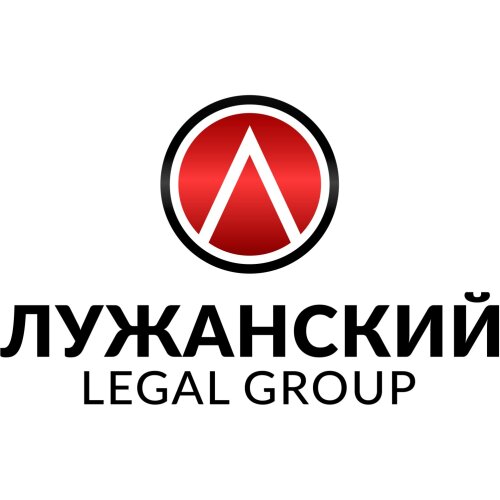Best Oil, Gas & Energy Lawyers in Bishkek
Share your needs with us, get contacted by law firms.
Free. Takes 2 min.
List of the best lawyers in Bishkek, Kyrgyzstan
About Oil, Gas & Energy Law in Bishkek, Kyrgyzstan
Kyrgyzstan, nestled in Central Asia, is endowed with substantial energy resources, particularly in the form of hydroelectric power, which dominates its energy sector. However, the country also harbors potential in oil and gas resources that have yet to be fully realized. Bishkek, the capital and largest city, serves as the central hub for legal, regulatory, and commercial activities in the country's oil, gas, and energy sectors. Developing these sectors is a national priority, and the legal framework surrounding them is continuously evolving to attract foreign investment and ensure sustainable development.
Why You May Need a Lawyer
Engaging a lawyer in the oil, gas, and energy sectors is often essential due to the complex and technical nature of the industry. Common situations where legal advice is crucial include:
- Drafting and negotiating contracts for exploration and production sharing agreements.
- Navigating regulatory compliance related to environmental and safety standards.
- Handling disputes in joint ventures or collaborations with local entities.
- Understanding taxation and royalty structures applicable to oil and gas operations.
- Addressing land acquisition issues for energy projects.
- Dealing with political and economic changes affecting the energy market.
Legal expertise ensures that operations are compliant, contracts are fair and beneficial, and any disputes are managed effectively.
Local Laws Overview
The legal landscape for oil, gas, and energy in Kyrgyzstan is shaped by a mix of national laws and international agreements. Key aspects include:
- Licensing and Permits: Companies must obtain appropriate licenses and permits to explore and develop resources. This process is governed by the Law on Subsoil.
- Environmental Regulations: Laws like the Environmental Protection Law mandate rigorous environmental assessments and compliance to prevent detrimental impacts on the environment.
- Taxation and Royalties: The Tax Code specifies the framework for taxation of oil and gas revenues, including royalties payable to the state.
- Investment Laws: The Law on Investments provides a supportive framework for foreign investors, including legal protections and incentives.
- Dispute Resolution: Legal disputes may be resolved through national courts or international arbitration, depending on the agreements made.
Frequently Asked Questions
What are the primary energy resources in Kyrgyzstan?
Kyrgyzstan's primary energy resources are hydroelectric power, supplemented by potential oil and gas resources that are gradually being developed.
What are the licensing requirements for oil and gas exploration?
Licences for exploration and production are obtained through a state bidding process as per the Law on Subsoil, with specific requirements for environmental and financial commitments.
How is the environmental impact of energy projects monitored?
The environmental impact is monitored by the State Agency for Environmental Protection and Forestry, ensuring compliance with national environmental standards.
Are there incentives for foreign investors in the energy sector?
Yes, the Law on Investments offers various incentives such as tax benefits and legal protections to encourage foreign investment.
How are disputes in the energy sector typically resolved?
Disputes can be resolved through local courts or through international arbitration, depending on the terms of the contract.
What role does the government play in energy projects?
The government is involved in regulating the industry, granting licenses, and ensuring compliance with legal and environmental standards.
Are there specific laws for renewable energy projects?
Kyrgyzstan has specific statutes promoting renewable energy development, aligned with its focus on using hydroelectric power and potential solar and wind resources.
What taxes apply to oil and gas operations?
Taxes include corporate income tax, VAT, and royalties, with specifics governed by the national Tax Code.
Is there a focus on sustainable development in Kyrgyzstan's energy policies?
Yes, sustainable development is a priority, with policies increasingly emphasizing renewable energy and minimal environmental impact.
What is the role of local communities in energy projects?
Local communities are often stakeholders in projects and are considered in environmental impact assessments and corporate social responsibility initiatives.
Additional Resources
For those seeking further information or assistance, the following resources may be helpful:
- Ministry of Energy of the Kyrgyz Republic: Provides regulatory guidance and oversight.
- State Committee for Industry, Energy and Subsoil Use: Involved in licensing and monitoring subsoil use.
- State Agency for Environmental Protection and Forestry: Ensures compliance with environmental laws.
- Kyrgyz Investment Promotion and Protection Agency: Offers support to potential investors in the energy sector.
Next Steps
If you require legal assistance in the oil, gas, and energy sectors in Bishkek, Kyrgyzstan, consider the following steps:
- Research and Identify: Begin by identifying legal firms and professionals with expertise in the energy sector in Kyrgyzstan.
- Consultations: Arrange consultations to discuss your specific needs, project details, and potential legal challenges.
- Engagement: Engage a lawyer or a legal team who are experienced and well-versed in local and international energy law.
- Prepare Documents: Collaborate with your legal team to prepare and review all necessary documents before proceeding with projects.
- Stay Informed: Regularly update your knowledge on local laws and regulations as they evolve.
By following these steps and leveraging the resources available, individuals and businesses can navigate the complexities of the oil, gas, and energy sectors effectively.
Lawzana helps you find the best lawyers and law firms in Bishkek through a curated and pre-screened list of qualified legal professionals. Our platform offers rankings and detailed profiles of attorneys and law firms, allowing you to compare based on practice areas, including Oil, Gas & Energy, experience, and client feedback.
Each profile includes a description of the firm's areas of practice, client reviews, team members and partners, year of establishment, spoken languages, office locations, contact information, social media presence, and any published articles or resources. Most firms on our platform speak English and are experienced in both local and international legal matters.
Get a quote from top-rated law firms in Bishkek, Kyrgyzstan — quickly, securely, and without unnecessary hassle.
Disclaimer:
The information provided on this page is for general informational purposes only and does not constitute legal advice. While we strive to ensure the accuracy and relevance of the content, legal information may change over time, and interpretations of the law can vary. You should always consult with a qualified legal professional for advice specific to your situation.
We disclaim all liability for actions taken or not taken based on the content of this page. If you believe any information is incorrect or outdated, please contact us, and we will review and update it where appropriate.











